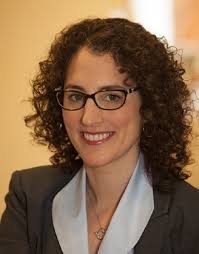Measles outbreaks: vaccinations are the answer
By GuestBy Julie Goodman, PhD, Canton Board of Health
The measles vaccination program started in the United States in 1963. In each year of the preceding decade, 3-4 million people in the U.S. contracted measles, each year causing 1,000 cases of encephalitis and hundreds of deaths.
 The Centers for Disease Control and Prevention (CDC) declared that measles was eliminated from the U.S. in 2000 as a result of the highly effective vaccination program and better measles control in the Americas region. However, the number of cases has been rising in recent years, mostly in unvaccinated people. In the first four months of 2019, there were 764 cases of measles, 96 percent of which were in people who were not vaccinated.
The Centers for Disease Control and Prevention (CDC) declared that measles was eliminated from the U.S. in 2000 as a result of the highly effective vaccination program and better measles control in the Americas region. However, the number of cases has been rising in recent years, mostly in unvaccinated people. In the first four months of 2019, there were 764 cases of measles, 96 percent of which were in people who were not vaccinated.
Measles is still found in many countries around the world. As a result, unvaccinated travelers have been infected by this extremely contagious disease in these countries and have carried it into the U.S. Several outbreaks of measles have occurred in communities in the U.S. where groups of people are unvaccinated.
The Measles, Mumps, and Rubella (MMR) vaccine is 93 percent effective at preventing measles in people who receive one dose, and 97 percent effective in people who receive two. The CDC and the American Academy of Pediatrics (AAP) agree that vaccines do not cause autism. More importantly, getting vaccinated is much safer than getting measles, mumps, or rubella, all of which can be very serious. Children who come down with measles risk blindness, deafness, brain damage, and even death.
As easy as measles is to prevent, it is even easier to contract. An unvaccinated person walking into an empty room in which an infected person had spent any time, even 12 hours earlier, can contract measles from that infected person.
Some people, such as those with a weakened immune system or who have severe, life-threatening allergies, cannot be vaccinated. This makes it even more important that people who can be vaccinated do so. The best way to prevent people who cannot be vaccinated from being exposed and then contracting these diseases is for others in their community to get vaccinated. In public health, this is referred to as “herd immunity.”
In Canton, the MMR vaccine is available at CVS, Walgreens, and Shaw’s. If you have any questions about the vaccine, you can call Cindy Bonner, the Canton Public Health Nurse, at 781-821-2942. The information in this article can be found at www.cdc.gov.
Short URL: https://www.thecantoncitizen.com/?p=55951










